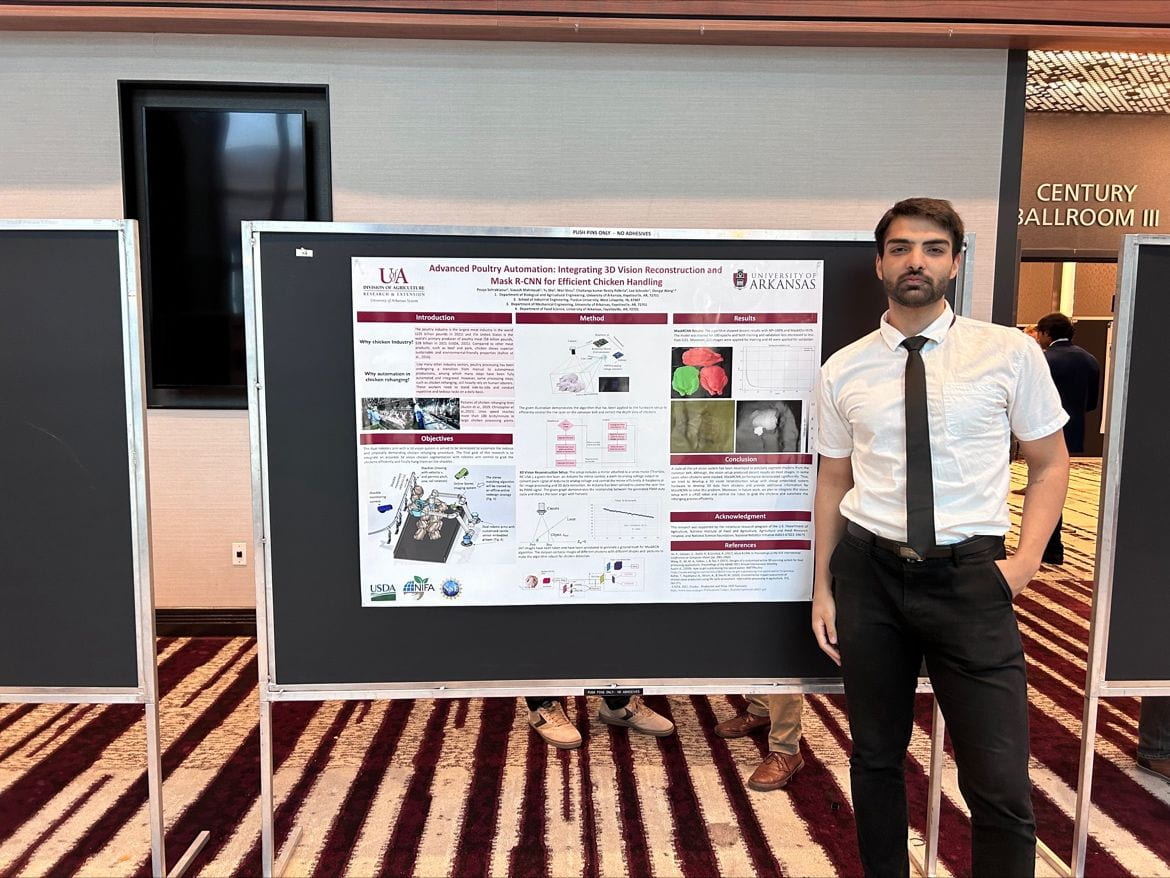Biological and Agricultural Engineering Student Places First in Poster Competition
By John Lovett – Apr. 25, 2024

Pouya Sohrabipour, a biological and agricultural engineering master’s degree student at the University of Arkansas, was awarded first place for his research in robotics at the AI in Agriculture 2024 Conference. The U.S. Department of Agriculture-funded event was hosted at Texas A&M University. (Courtesy photo)
FAYETTEVILLE, Ark. — Pouya Sohrabipour, a biological and agricultural engineering master’s degree student, was awarded first place in a U.S. Department of Agriculture-funded research poster competition earlier this month.
Sohrabipour was awarded as the lead author for his work on robotics at the 2024 AI in Agriculture Conference on April 15. The third annual event took place this year at Texas A&M University.
“Pouya’s research focuses on the intersection of robotics and computer vision within the poultry industry,” said Dongyi Wang, assistant professor of biological and agricultural engineering for the Arkansas Agricultural Experiment Station. “Specifically, his work aims to efficiently detect and segment chicken carcasses on conveyor belts, paving the way for the integration of vision systems into robotic arms for autonomous poultry processing, which is expected to streamline operations, reduce manual labor and enhance overall productivity in the poultry industry.”
Wang, who is also part of the food science department, served as a co-author on the study. The experiment station is the research arm of the University of Arkansas System Division of Agriculture.
Other co-authors of the work that were recognized at the conference included biological engineering Ph.D. student Siavash Mahmoudi; food science master’s student Chaitanya Pallerla; biological engineering program technician Lee Schrader; and mechanical engineering assistant professor Wan Shou.
This research was supported in part by a $1 million grant funded through a join proposal between the National Science Foundation’s National Robotics Initiative 3.0 and the United States Department of Agriculture’s National Institute of Food and Agriculture.





